
A film by Katsumi Iwauchi.

Kurokawa
Maruyama, a day laborer, is living on an abandoned ship at the port of Osaka when he meets an elusive man offering a job.

Hazama meets a woman at a restaurant and she asks him to protect her and her diamond.

The Crazy Cats, a Japanese musical-comedy group, were showcased a series of comic adventures throughout the 1960s. Las Vegas Free-For-All, one of their most popular movies, featured scenes filmed on location in Las Vegas, Los Angeles, and Hawaii. Appearing with the seven Cats were the lovely Mie Hama and such Japanese musical artists as The Peanuts, The Johnnys, The Drifters, and Jackie Yoshikawa & the Blue Comets.

Riki Tanuma
College student Yuuichi Tanuma is fired up for Nationals where his university Kyonan will face off against their rivals, Seihoku. Yuuichi has his sights set on winning football gold, but his father, who wants him to take over his sukiyaki restaurant, isn't too keen on this. Set in Kyoto, Hong Kong, and Macau, we follow Yuuichi as he falls in love and chases after his dreams.

Masako is a humble waitress who has a chance encounter with playboy Tamotsu. With the aid of his sister, Tamotsu seeks to win Masako's affection despite the disapproval of his wealthy parents and Masako's own feelings towards the working-class cabbie Noro.

Yuichi's Grandmother
Seventh movie of the Wakadaishō series directed by Kengo Furusawa
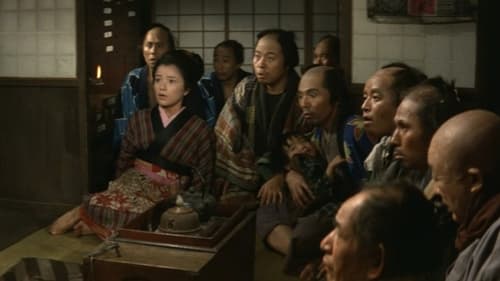
A group of ne'er-do-wells live happily in the slums of what is now Tokyo and have a number of adventures: they get drunk and go whoring, revenge themselves on cruel landlords, animate the corpse of a money-lender in order to frighten people. Then they assist at the marriage of a lovely girl and almost kill themselves gambling to provide her with a dowry.
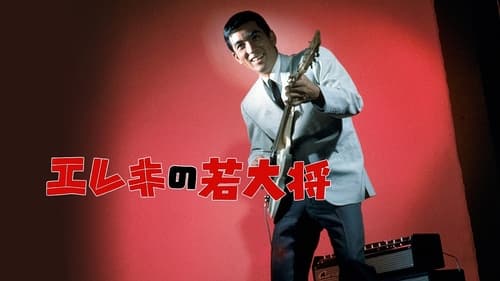
Riki Tanuma
Young Guy (Kayama) competes in an electric guitar competition and plays American-style football. Released alongside Invasion of Astro Monster.

田沼りき
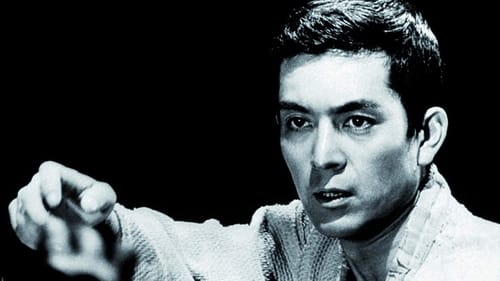
Old Lady
Remake de los dos filmes sobre "la leyenda del gran Judo" de Akira Kurosawa, filmados en 1942 y 1945.

Sabu was once a boy soldier but people in his village disliked him. He finally broke loose when his land was taken.

Hitoshi's Grandmother

Otami
A light comedy with Ayako Wakao charming her patients.

Okuni
A youth drama directed by Kiyoshi Horiike, who was adapted from "Young Tokyo no Yane" by Akira Saiga from "Oka wa Hanazakari" based on Yojiro Ishizaka. Miwako Kazuki left the English literature department and joined Toyo Critics. She was attracted by Noro, the editor-in-chief, whose wife died a few years ago and was now living with her two orphans and her old mother....
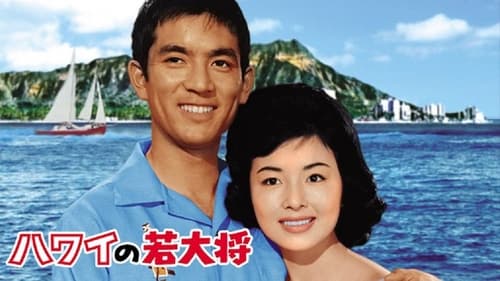
田沼りき
Fourth entry in Toho's Wakadaishō series directed by Jun Fukuda and released on a simultaneous screening with Matango. Filmed on location in Hawaii.

This is a factory area in downtown Tokyo, and Hikaru, nicknamed Pika-chan, is a nurse at the Mihara Clinic, a friend of the poor.
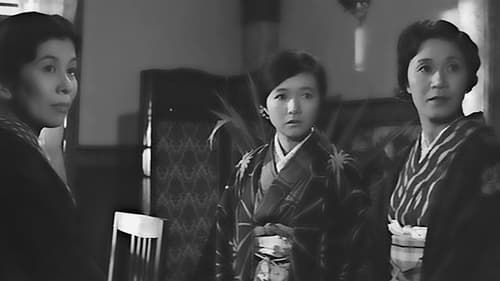
Considered one of the finest late Naruses and a model of film biography, A Wanderer’s Notebook features remarkable performances by Hideko Takamine – Phillip Lopate calls it “probably her greatest performance” – and Kinuyo Tanaka as mother and daughter living from hand to mouth in Twenties Tokyo. Based on the life and career of Fumiko Hayashi, the novelist whose work Naruse adapted to the screen several times, A Wanderer’s Notebook traces her bitter struggle for literary recognition in the first half of the twentieth century – her affairs with feckless men, the jobs she took to survive (peddler, waitress, bar maid), and her arduous, often humiliating attempts to get published in a male-dominated culture.

Riki Tanuma
Yuuichi Tanuma, our young hero, is a senior at Kyonan University and captain of the marathon team. His parents run a sukiyaki restaurant back in his hometown. When his allowance stops coming in, Yuuichi moves back in with his folks to work part-time. He has his eyes set on nationals in the fall, until one day he runs into a young woman who's fallen into trouble with the Lightning Gang...

Riki Tanuma
Young Yuichi (Kayama) romances Sumiko (Hoshi) while helping out at his family's restaurant, singing in a band, and preparing for an important boxing tournament.

Hana
Two obaachans become fast friends listening to music in front of a record store. They both boast about their loving sons but in reality, one had just escaped a retirement home and the other was looking for an escape from her son and daughter-in-law. With nowhere to go, the two wander around, befriending a cosmetics salesman and a kind waitress who give them beer. This biting social satire starring two memorable grandmothers, scripted by Yôko Mizuki, picked up on Japan’s aging population problem far ahead of its time.
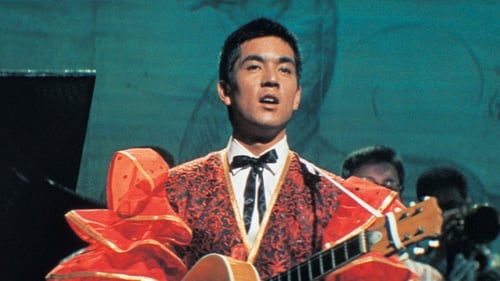
Riki Tanuma
The first instalment in Toho's popular Wakadaishō (Young Guy) series.

Miho no sobo
In "The Other Woman" the children of a distinguished professor find that the woman they have come to regard as their racy and slightly disreputable Ginza aunt is really their mother.

A unique action film about a battle between two students and a yakuza over the eviction fee for a family that abandoned their home at the bottom of an artificial lake.

Follows the life of Tsuru, the poor daughter of farmers in Shinshu, Japan.

Focuses on the mutual antipathy of two groups of children in an Izu village.
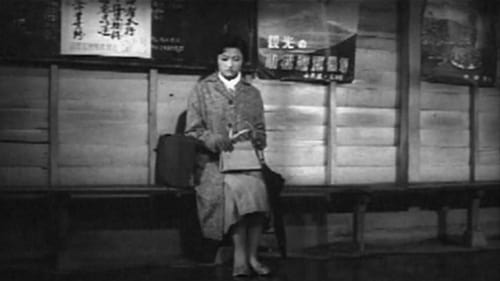
An Ishiro Honda film.

Alongside Tokyo's Sumida River is a ragpickers' settlement known as Ant Village. One night, a young Catholic girl, Satoko Kitahara, who has been baptized under the name of Maria, comes to offer her services. However, Ant Village is not just an ordinary vagrants' community but a fine autonomous organization, and as the municipal authorities have long been demanding that the people of Ant Village leave the site, Satoko is utilized to publicize the Village and win public sympathy. While being utilized in this manner, Satoko is nevertheless glad to be able to help the people of Ant Village, especially the children, and when the summer vacation comes she decides to take the children on an excursion to Hakone. To raise funds for this purpose she becomes a rag-picker herself.

A young, struggling couple are making every sacrifice so they will one day in the not-too-distant-future, have enough money to get married. As they have agreed on this procedure, it comes as a shock to the young woman to find out from her husband-to-be that he just loaned all the money they had saved to a friend. She is understandably miffed, and a big disagreement results. But after some time goes by, she discovers why the friend needed the money so badly, and the couple are back on solid footing again.
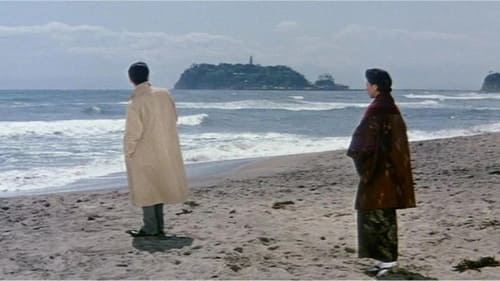
Hidé
A war widow with a young boy manages a farm with her bossy mother-in-law. When a reporter comes to interview her, the two begin an affair. He turns out to be married and won't leave his wife. Her older brother tries to marry off his children and hang on to/ extend his farm through an advantageous marriage in the face of threatened land confiscation and the desire of his children to get comfortable urban jobs instead of the backbreaking work in the paddy fields under parental control.
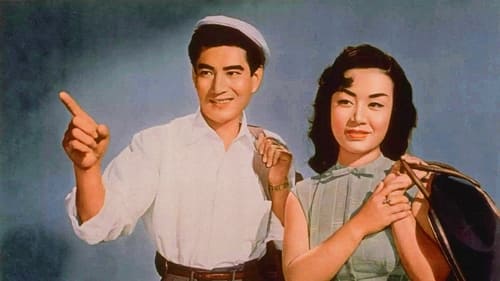
A friendly rivalry turns into romance for Yukiko, an elite female detective, and a handsome private eye named Mitamura while both are investigating the missing person's case from a wealthy family.
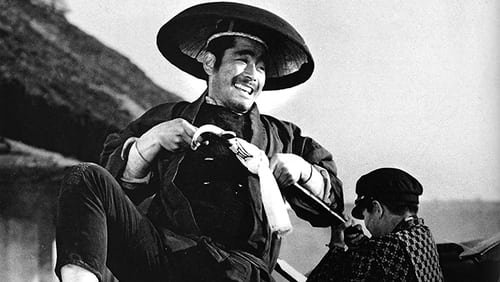
Otora
Matsugoro, un pobre conductor de carro en el Japón del periodo Meiji, devuelve a un niño perdido, Toshio, a su casa. Sus padres se muestran con él muy agradecidos. Tras la muerte del padre, la madre, Yoshiko, muy preocupada por su hijo, le pide a Matsugoro que le ayude a educarlo. Él acepta encantado. Con el paso del tiempo le coge mucho cariño, al niño y a la madre. Pero Toshio crece, y se marcha a estudiar a la universidad de Tokio, y Matsugoro se siente abandonado y triste...

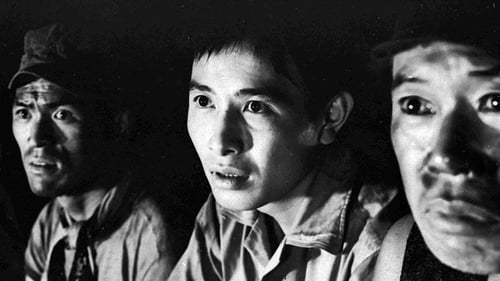
Kane Ishigaki
Based on a 1956 television feature on Japan’s national network, NHK, this is one of Uchida’s rarest films. A socially conscious drama with a contemporary backdrop, Dotanba focuses on the attempts to rescue a group of trapped miners. The title is a figure of speech — (essentially “last minute” or “eleventh hour”) — that refers to a situation of peril. The film boasts a script co-written by Uchida and Akira Kurosawa’s frequent screenwriter, Shinobu Hashimoto, and stars Kurosawa’s frequent star Takashi Shimura.

Grandmother
On Wings of Love is a 1957 Japanese romantic musical film directed by Toshio Sugie. It was Toho's highest-grossing film of the year and the first film released in Tohoscope.

Masu
In a military family, an illegitimate son is brutalized by his brothers. A patriarchal, feudalistic household where dissent is forbidden is used to reveal the whole imperialist system that afflicted Japan between 1921 and 1946. Winner of the Crystal Globe at the Karlovy Vary Film Festival.
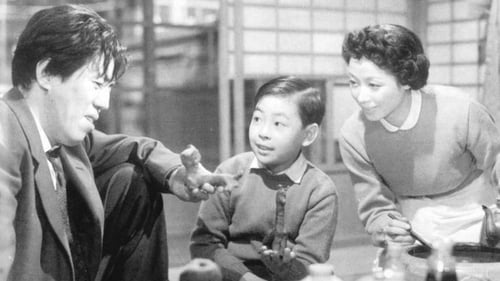
In this Golden Globe winner for Best Foreign-Language Film, director Heinosuke Gosho -- a master chronicler of Japanese middle-class life -- presents the story of Kiyoshi Yoshida (Koji Shitara), who feels estranged from both parents after his father returns from war. How the boy adapts to life with the virtual stranger his father has become is the film's focus. Chikage Awashima, Yûnosuke Itô and Yoshiko Kuga also star.

Shochiku Production on typhoon

Dotanba - Last Minute

Japanese drama film.

Omaki
Oiwa has been searching for the one who killed her father for a long time. She comes to Yedo and sees a man named Naosuke. The film is based on the kabuki classic: Toukaidou Yotsuya Kaidan (1826) written by Tsuruya Nanboku and is one of the most famous ghost stories throughout Japan.

Poor social conditions badly affect the relationship between a married couple, when the husband, who is desperately searching for work, fails to notice the terrible sacrifices made by his wife when she accepts a job at a local inn.
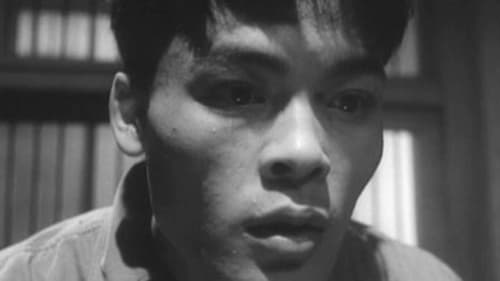
Tsuna Uemura
Police beat a murder confession out of four innocent men who are then sentenced to death. Based on a true story.

Japanese drama film.
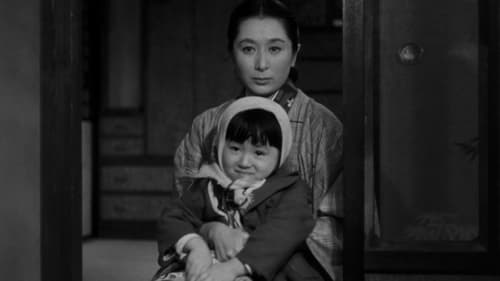
Hide
Basado en la vida de la poetisa tanka Fumiko Nakajo, la película cuenta la historia de una mujer de mentalidad moderna aquejada de un cáncer de mama.

From runaway brides to a typhoon, the continued adventures of Ushikata police station.

Five years have passed since the three comrades who saved their lives on the Burma Campaign-Kenichiro Kishi, Eiji Shiga, and Daizo Kobayashi promised to meet again five years later at the platform of Shinagawa Station, which was crowded with repatriates. , The day of reunion is approaching.

A boy falls in love with a girl. Neither of them know that she's to be sold to a brothel.

Tatsu, the mother
Lending money, job hunting for civilians and babysitting. All these things are usually not listed on a policeman's job description. But for the officers of this local police station, it‘s part of their daily routine. One day, patrolman Yoshii (Hisaya Morishige) finds an abandoned baby and a six year old girl standing in front of the station. When he's declined by the welfare office, orphanage and local health clinic to take them in, he decides to take care of them himself.

Three young women make a suicide pact, but they grow to have a better understanding of themselves.
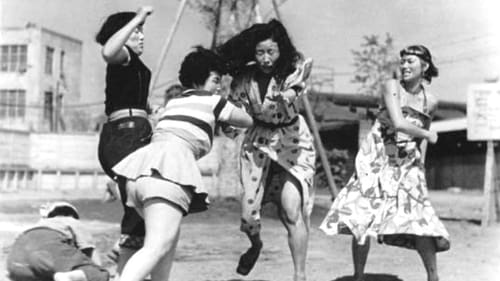
Tsuru, una mujer con problemas mentales, es protegida por Toku y Pinchan, dos hombres que viven en una villa de emergencia, en una zanja al costado de las vías del ferrocarril. La fábrica en la cual trabajaban ha sido cerrada por una huelga, por lo que ambos hombres gastan tiempo y dinero apostando en las carreras de bicicletas. Tsuru trabajaba en una fábrica textil, pero un grupo de jóvenes robó todo el dinero de su indemnización. La particular comunidad de la zanja incluye a Chu, un actor que también está un poco loco, y Hiromi, quien viste siempre un traje elegante y de quien se dice es la amante de un hombre poderoso.

Osan
A young woman, who must support her father as a middle-aged man's mistress, finds herself falling in love with a student closer to her age.
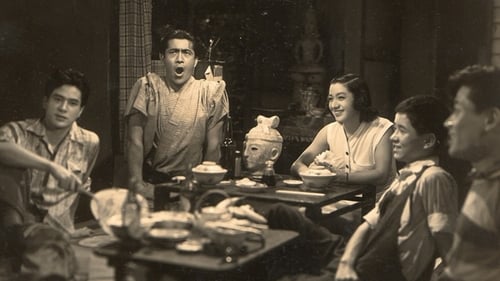
Matsuyo
Following the Second World War, the lives of various people in a poverty-stricken area of Tokyo are entertwined. Pachinko parlor girls, shoeshine boys, a maker of costume jewelry, and a streetcorner artist all struggle to make their livings and to find happiness in difficult surroundings.

Kiyo Yamamoto
Directorial debut by Umetsugu Inoue, the famous director of Musicals

Kikuyo

Ikeuchi was captain of the K - University ice hockey team. The daughter Shikotsuko of Ginza 's western restaurant "Piccolo" was also a female student at K University and was a figure player. They had a dream of being dispatched to Oslo in the Olympic Games and were struggling in each way. Mizuno who runs a sports equipment store in Ginza, showed the geisha by guiding the junior's Ikeuchi and others to the shop of Shimbashi one day.

Kiyo
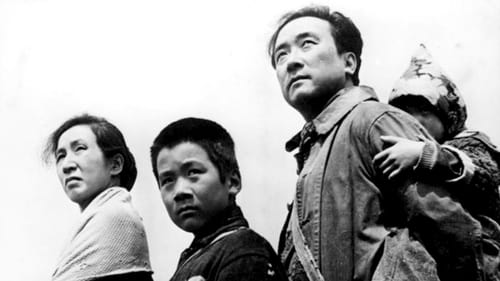
Akiyama grandmother
About the struggles of day labourers to achieve dignity and a standard of living above the starvation level. Utilising the Zenshinza theatrical troupe.

Adaptation of a novel by Yojiro Ishizaka, originally released in two parts.

A bar girl tries to pass her three children, each from a different father, to rural relatives.

Seeds
An early film by Kon Ichikawa
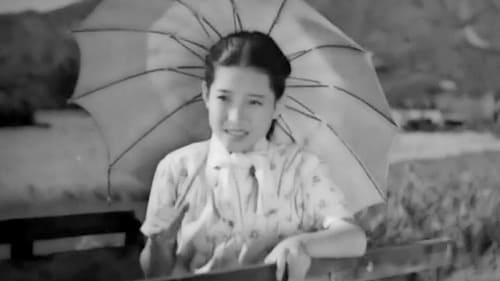
Three humorous love stories set in rural Japan.

Oseki, old maid
Saheita, the final heir of a once rich and respectable family, can't refuse the many villagers that come to him for favours and money, even though he is on the brink of bankruptcy. Around town he is better known by his nickname Mr. Shosuke Ohara.
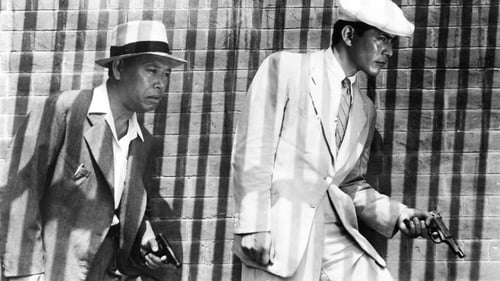
Kogetsu Hotel manager
Ambientada en la postguerra japonesa tras la II Guerra Mundial (1939-1945). Con la estructura del thriller americano y los convencionalismos japoneses, narra la historia de un joven detective al que roban su pistola. Agobiado por un sentimiento de deshonor más que de pérdida, emprende, con un veterano compañero, una frenética e incansable búsqueda que lo lleva a los bajos fondos de Tokyo.

Japanese comedy film.

Kohei's Mother
Part 2 starts where the first film ended, with Iemon disposing of the bodies of his wife and Kohei, marrying upward, and being blackmailed by the evil Naosuke.
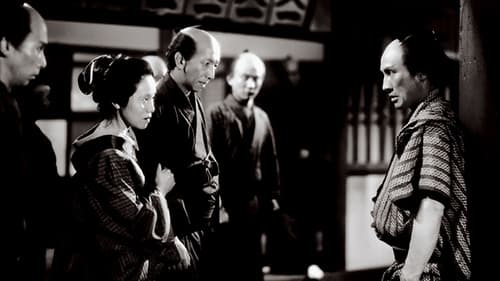
Okura
Iemon Tamiya is an impoverished masterless samurai who craves a better life, which he cannot have because of his marriage to Oiwa, who is completely devoted to her husband.

The tale of a feudal swordsman who cynically takes no responsibility for anything, relegating it to others, and then taking the credit.

Japanese adaptation of Marcel Pagnol's play "Marius", set in early XXth century Japan.
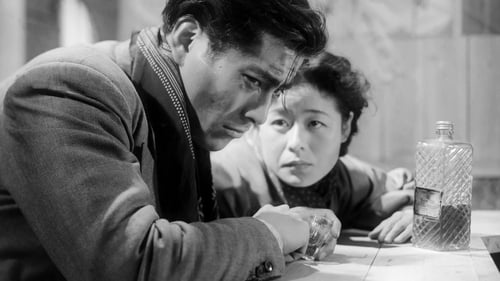
Bâya
Después de la Segunda Guerra Mundial (1939-1945). Crónica sobre la relación entre un gángster de la mafia japonesa ("yakuza"), enfermo de tuberculosis y el médico alcohólico que lo atiende.

Tama Takemura
Slice of life film centered around a couple of years in the life of a rural high school girl.
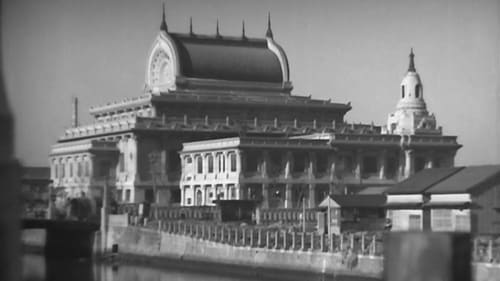
Tané
En el Japón de la postguerra, un hombre encuentra en la calle a un niño perdido y lo lleva a su casa, pero nadie quiere acogerlo, ni siquiera por una noche. Finalmente, lo hace una viuda de agrio carácter. Al día siguiente, la mujer lleva al niño a su barrio y averigua que el padre se ha marchado a Tokyo y lo ha abandonando. (FILMAFFINITY)

Lord for a Night is a 1946 Japanese film directed by Teinosuke Kinugasa.

Kiyoshi, un joven oficial de clase acomodada, es enviado a la Península de Izu, cerca de Tokio. No hay lugar dónde vivir y el templo local permanece lleno de gente que ha debido alejarse de sus hogares como consecuencia de la guerra. Unos lugareños le indican a Kiyoshi que el dueño de un restaurante cercano y padre de dos hijas solteras tiene una habitación libre en su casa. Las relaciones entre los miembros de la familia no volverán a ser las mismas luego de la llegada del nuevo inquilino.
Estrenada el 30 de agosto de 1945, apenas dos semanas después de la rendición nipona, Las jóvenes de Izu fue el primer estreno cinematográfico japonés luego del fin de la Segunda Guerra. Gosho había realizado apenas cuatro películas durante esos años y ninguna de ellas puede ser considerada artículo de propaganda.
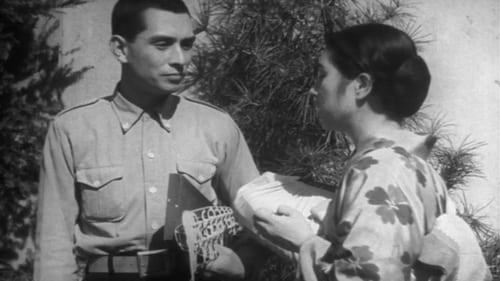
Wife of bathhouse owner
The few residents left on the streets in Tokyo share their individual stories and come to understand the melancholy of saying goodbye.

Japanese Warmovie

The story of a boy who befriends a lonely middle-aged man.

Pretty Oshige is deceived by her first love. After this, she lives a hard lifestyle, working at a number of jobs. Her only pleasure is her nephew, who eventually becomes a merchant marine. When Oshige meets her old love ten years later, she is able to forgive him and even thank him for the path her life has taken.

An older sister and brother (Mieko Takamine and Masayoshi Otsuka) come to visit their grandfather (Takeshi Sakamoto) who lives deep in the mountains. As for their parents, father was serving in the South Seas and mother died of illness on her way home. So, the brother, who is still young, will live alone with his grandfather whilst the sister goes away to study to become a teacher.

Most of the students studying Ikebana with Kozoe Iemoto are daughters of rich Tokyo families. Kozoe meets and grows close to a doctor who proposes marriage but whose mother harbours ill feeling towards her because of an incident in the mountains where a child got into difficulties. Kozoe rejects the proposal but falls ill and when she recovers, decides to devote herself entirely to the world of flower arranging.

Landlady
Uta’s mother died when she was six years old; her father she never met. She was forced to adopt a traveller’s life when her grandmother died, and now she is a dancer and part of a family of actors who travel from town to town, setting up street performances. A way of escape from this marginal existence arises when she gets the chance to move to tea merchant Hiramatsu’s place, where she is asked to teach his daughter to dance.
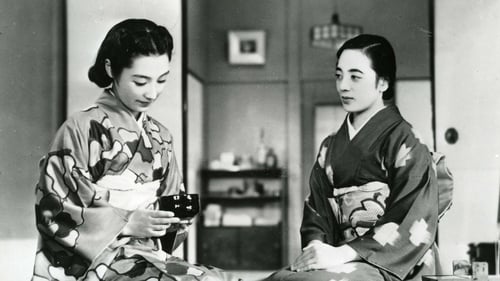
Después de la muerte del patriarca, los Toda, una familia de clase alta, está posando para una foto. Al mismo tiempo que todos lamentan la muerte del padre, se enteran de que éste les ha dejado una deuda considerable.

Okei
A spirited young teacher challenges the conservative school employing her with liberal thinking and teaching methods.

A 1937 Japanese film.
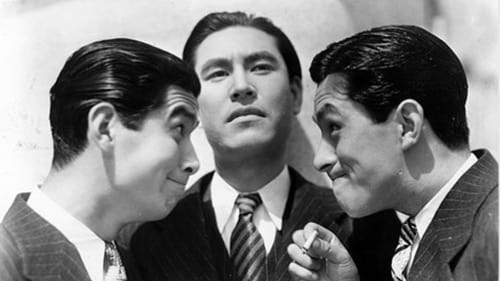
Woman at tobacco shop
Three men vying for the same job end up chasing the same girl in this comedy-drama from noted Japanese director Yasujiro Shimazu.

Chiyoko Sugiyama
El profesor Komiya está casado con Tokiko, una mujer muy estricta y dominante. El matrimonio tiene que hacerse cargo de la custodia de su sobrina Setsuko que, aunque menor de edad, ya es una mujer liberada, que fuma y sale de noche. Un sábado Komiya va a un bar, donde encuentra accidentalmente a Setsuko. Cuando Tokiko ve que la chica llega a casa con uno de los estudiantes de su marido y, además, se entera de que éste no ha dormido en casa, empieza a alimentar toda clase de sospechas.

Miura's mother
Episode in the life of a composer of a popular Japanese song.

The narrative is about a woman who faces hard times, when her husband is arrested for a crime committed by his boss. The woman also has a child to look after, and they end up meeting several colorful personalities.
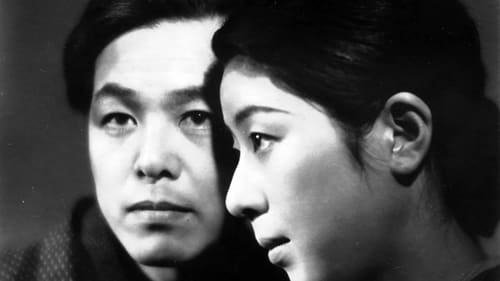
Tsune Nonomiya (O-Tsune)
Una campesina se esfuerza al máximo para que su hijo pueda recibir en Tokio una buena educación. Algunos años después, lo va a visitar, dando por supuesto que será feliz y tendrá una buena posición social. Pero, nada más llegar, se encuentra con la triste realidad: su hijo, que está casado, es profesor de la escuela nocturna y vive sumido en la miseria.

A musical film made for the inauguration of Shochiku's Ofuna Studio, with an all-star cast of the era.

Otoku, Seiichi's mother
Otoku asks her brother Bunkichi to speak with her son Seiichi, a young man for whom sacrificed everything but who now seems to be headed for a wastrel life. Bunkichi admonishes the boy to study harder, but it seems his uncle's advice may already be too late.

Oyuki
A melodrama about a businessman's relations with the three women in his life.
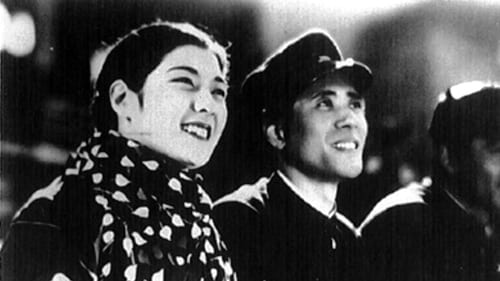
Wife of the b.h. owner
In a Tokyo boarding house a group of students and recent graduates struggle to complete their studies and find jobs. Considered a lost film.
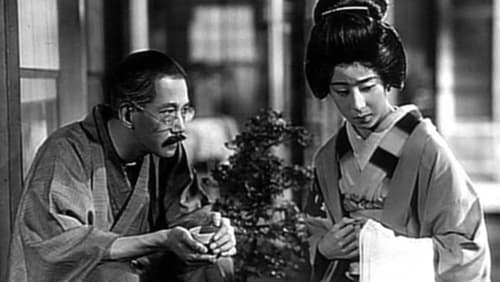
Okane
Family drama. A middle-aged father has just married off his third daughter, but still has his nine year old son to raise whom he resents as he was unwanted. (British Film Institute)

Otsune
Kihachi, an unemployed worker, wanders around the industrial flatlands of Tokyo's Koto district with his two young sons, Zenko and Masako. He is unable to find a job and has to rely on his sons catching stray dogs to earn reward money for their meals. As days go by, Kihachi and the boys no longer have enough money to stay at an inn for the night. Luckily for him, he encounters an old friend, Otsune, who finds him a job and allows them to stay at her eatery house.

Okimi
A period piece about the love of a wealthy blind woman, a teacher of koto and shamisen, and her devoted manservant. Based on a novella by Tanizaki Junichiro.
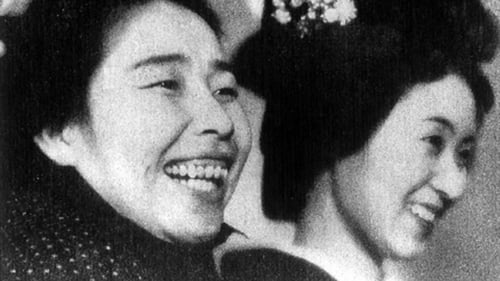
Otsune
In a back alley of the Shitamachi district of Tokyo, Kihachi bears witness to a series of romantic complications involving the inhabitants of the neighborhood. Considered to be a lost film.
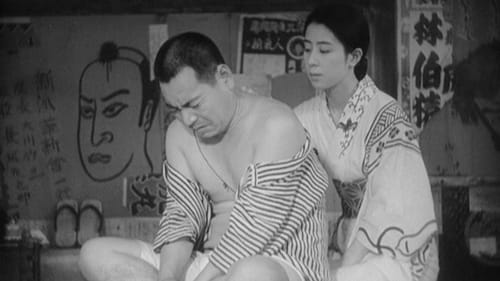
Otsune, Ka-yan
Un anciano y veterano actor que dirige un grupo de teatro Kabuki regresa a un pueblo remoto, donde vive su antigua novia y el hijo de ambos, que ya tiene 19 años. El chico, que desconoce su verdadera identidad, le llama "tío". En 1959, Ozu hizo un remake de este film: "Las hierbas flotantes". (FILMAFFINITY)

Period film from 1934.
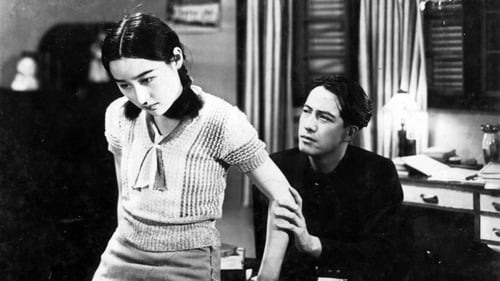
Hamako
Keitaro is a law student and Yaeko s a high school girl. They are neighbors, and their friendship is starting to develop into something more romantic. Then, Yaeko's sister Kyouko has a breakup with her husband and returns home. Kyouko is clearly interested in Keitaro and Yae becomes anxious.

Chabu-ya no souji-fu
The film tells of the strained relationship between a mother and her two sons after the death of the family patriarch.

A melodrama by noted auteur and father of director Yoshitaro Nomura, Hotei Nomura. This is apparently the first adaptation of Izumi Kyoka's The Romance of Yushima.

Heinosuke Gosho evokes in this film the family conflicts engendered by the eternal problem of a father who projects his professional desires on the life of his son. The sister Machiko is the essential link that will allow everyone to apologize to each other and achieve reconciliation

Otome
Two Tokyo co-workers come across a destitute young lady in search of a place to live.

A mournful masterpiece by Kinugasa Teinosuke
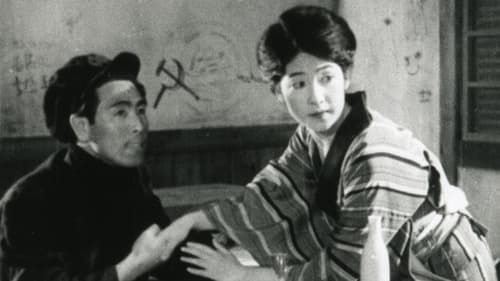
Landlady
La joven Omitsu se ha quedado sola con su hijo Ayabou tras verse abandonada por su esposo, Mizuhara. Cumplido su turno de camarera, regresa a casa para descubrir que su marido ha regresado. Mizuhara promete hacer borrón y cuenta nueva, así como encontrar un empleo que permita a Omitsu dejar de trabajar.
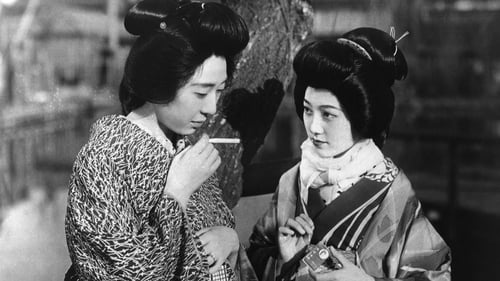
La vida de una geisha de mediana edad, cuyo adolescente hijo se avergüenza de su profesión, es puesta en contraste con la de una joven compañera, una chica encantadora a la que su familia empujó hacia ese tipo de vida.

A young couple is harrased by an uncle.

Geisha
"The Dancing Girl of Izu" tells of the story between a young male student who is touring the Izu Peninsula and a family of traveling dancers he meets there, including their youngest girl. The student finds the naïve girl attractive even though he eventually has to part with the family after spending memorable time together.

Neighbor
This pair of gentle yet witty and inventive comedies from the director of The Neighbour's Wife and Mine typify both the formal experimentation of early Japanese sound cinema and the social milieux that Shochiku tended to depict. 'Virtually plotless, and feeling more like comic sketches than fully developed stories,' writes Arthur Nolletti, Jr, 'these light comedies, or farces, take a wholly trivial matter (often a socially embarrassing situation) and use it as a springboard for a succession of gags.' Much of the films' distinction comes from the wit of Gosho's direction, the imaginative use of the new sound technology and the charm of the acting, particularly of the heroines (Kinuyo Tanaka in Bride; Hiroko Kawasaki in Groom). Yet in both films, Gosho finds room for some shrewd observation of character and environment, subtly exploring the values and assumptions of the suburban petit bourgeoisie.

Maid
A young man falls in love with a prostitute and is disowned by his family. He is then drafted, and heads off to war. Script exists - considered to be a lost film.

Saiki's mother
When a young man inherits his father's lucrative business, he cheats the system to set up three of his college friends with jobs.
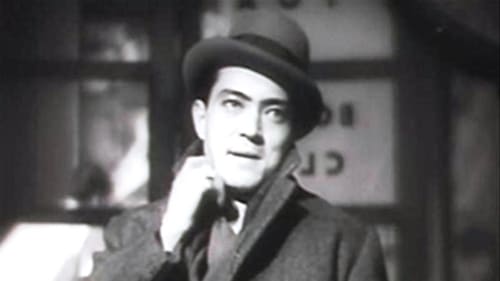
Mistress of hotel
Early Japanese sound film, a remake of Josef von Sternberg’s DOCKS OF NEW YORK set in Yokohama.

Nui, Fuwa's wife
This 1932 adaptation is the earliest sound version of the ever-popular and much-filmed Chushingura story of the loyal 47 retainers who avenged their feudal lord after he was obliged to commit hara-kiri due to the machinations of a villainous courtier. As the first sound version of the classic narrative, the film was something of an event, and employed a stellar cast, who give a roster of memorable performances. Director Teinosuke Kinugasa was primarily a specialist in jidai-geki (period films), such as the internationally celebrated Gate of Hell (Jigokumon, 1953), and although he is now most famous as the maker of the avant-garde silent films A Page of Madness (Kurutta ichipeji, 1926) and Crossroads (Jujiro, 1928), Chushingura is in fact more typical of his output than those experimental works. The film ranked third in that year’s Kinema Junpo critics’ poll, and Joseph Anderson and Donald Richie noted that 'not only the sound but the quick cutting was admired by many critics.
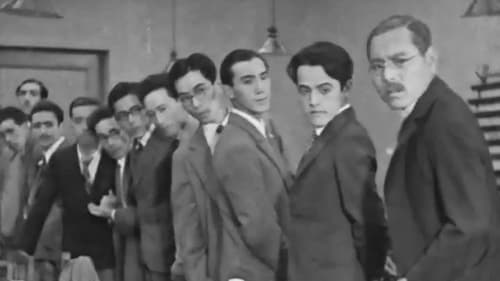
Sensei no tusma
Mr. Omura, a teacher, leads a group of male students in an outdoor drill. One slight, comic young man, Shinji Okajima, has no shirt under his jacket; he scratches at fleas and makes faces behind Omura's back. Jump ahead several years, Shinji is married with three children. He sells insurance, and on the company's annual bonus day, he protests when an older worker is fired. Shinji loses his own job as a result, and he and his wife must find ways to cope. Lassitude, pride, the demands and needs of young children, and relationships from bygone school days all play a part in the outcome of their struggle.

The three-hour Ai yo jinrui to tomo ni are / Love, Be with Humanity (1931) starts as a satire of alienation in the world of money, develops into a lumberland epic with a forest fire on Sakhalin Island, turns into a tragedy of King Lear dimensions, and manages to amaze the blasé audience with a happy end in the Wild West.

Sono haha (Hiroko's mother)
La Señora y la Barba comienza como una comedia bulliciosa, vulgar, que poco a poco se adentra en la melancolía y el patetismo. "La barba" del título pertenece a Okajima, un maestro de espada kendo que no puede encontrar un trabajo en la época de la depresión en Japón. La barba se la afeita cuando “la bella" - una mecanógrafo que ha salvado de un atraco- le convence de que es un obstáculo para encontrar un trabajo. Incluso bien afeitado, él no puede huir de los problemas: la nueva mujer de su vida resulta ser un ladrón de joyas. La Señora y la Barba es fascinante por su "audacia sexual" y por su crítica total a la occidentalización y el nacionalismo japonés estrecho de miras-

Landlady
Tetsuo Nomoto, un joven licenciado, intenta en vano encontrar un trabajo digno de sus méritos. Poco después se casa con su novia, Machiko, a quien oculta que no tiene empleo. Las penurias económicas no tardan en hacer mella, lo que fuerza a Machiko a buscar trabajo en un bar. "Me gradué, pero..." duraba originalmente 77 minutos, de los cuales (a fecha de 2013) se conservan exclusivamente entre 11-15. Éstos fueron incluidos en el DVD "The Student Comedies (The Ozu Collection)". (FILMAFFINITY)
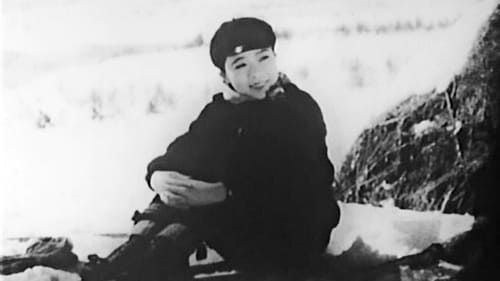
her aunt
Students Watanabe and Yamamoto unknowingly compete for the same girl.

Geisha's house landlady
A young man falls for one of the geisha working in the house where he lives. However, the romance doesn't find favour with his father or current girlfriend. Considered to be a lost film.
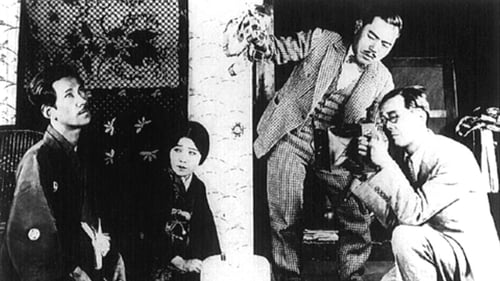
Ritsuko, Takai's wife
A hen-pecked man works as his artist wife's model and a house-husband. When her patron flirts with her and humiliates him, he decides to get revenge by trying his own hand as a painter. Considered to be a lost film.

Two criminal brothers try to go straight but face opposition from one of their criminal cohorts. Considered to be a lost film.


















































































